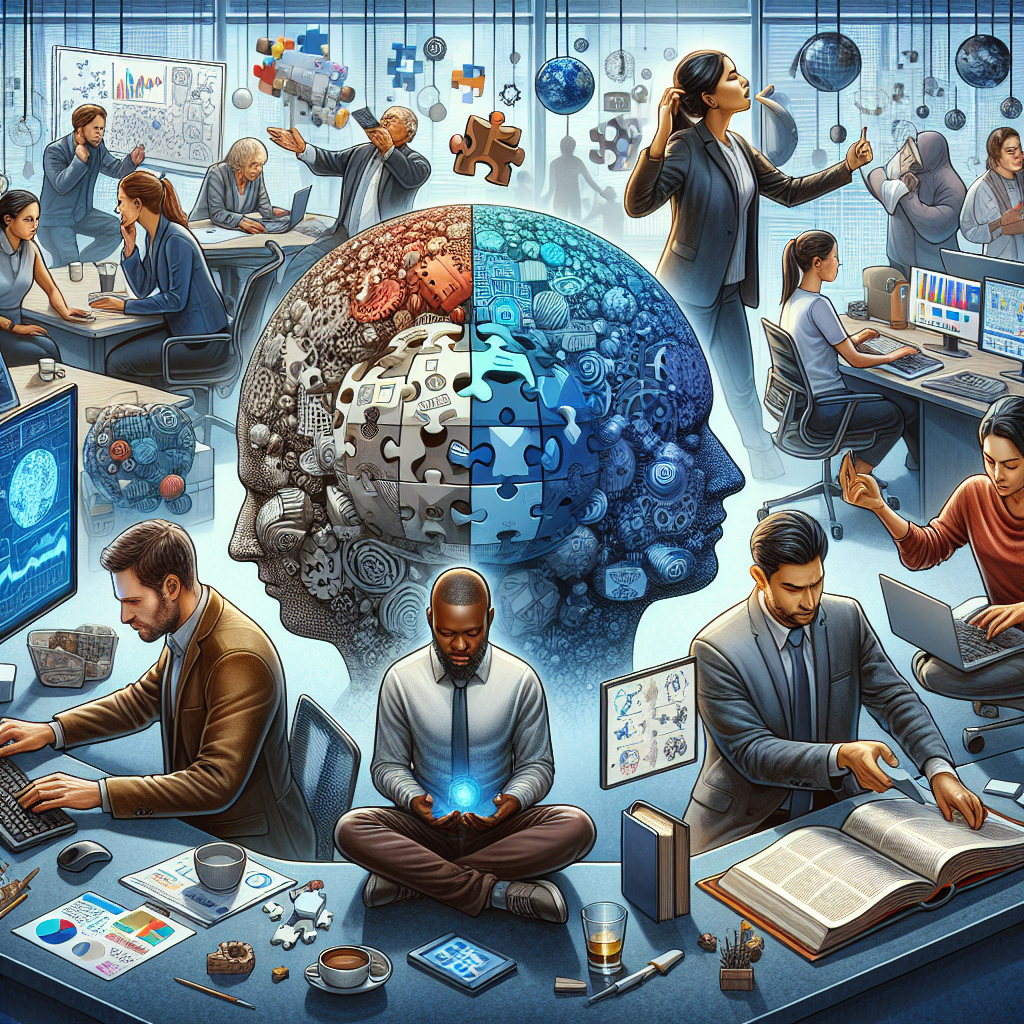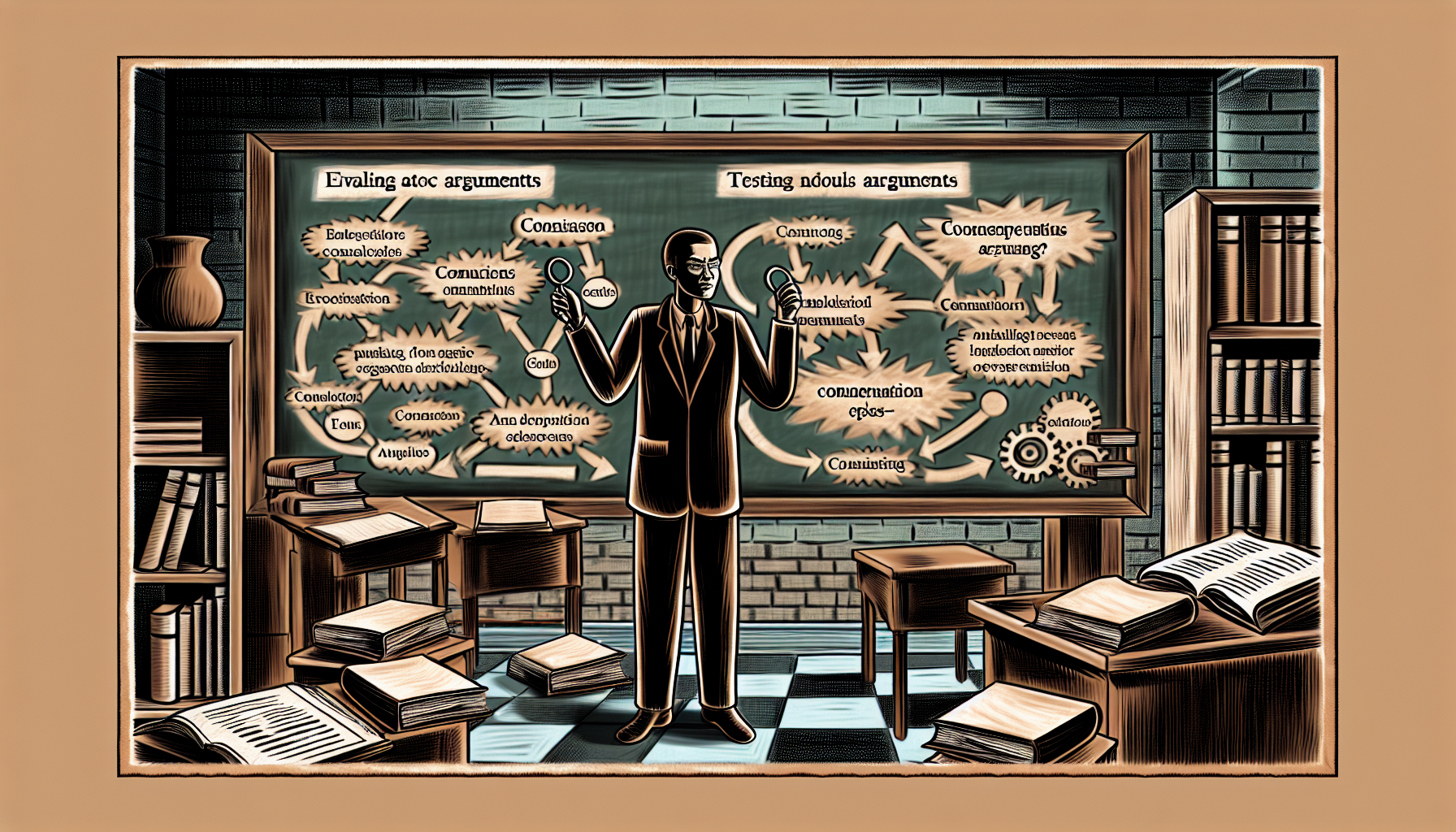This article discusses various approaches to problem solving and analysis to develop critical thinking skills.

Critical thinking is a cognitive skill that enables individuals to analyze, evaluate, and synthesize information effectively. It involves the ability to actively question assumptions, scrutinize arguments, and assess the validity of various perspectives. In our complex world, where information is abundant and often conflicting, the importance of critical thinking in everyday life cannot be overstated. Whether making personal decisions, engaging in professional scenarios, or participating in social discussions, individuals equipped with strong critical thinking skills are better prepared to navigate challenges and understand various viewpoints.
This cognitive approach serves as the foundation for effective problem-solving and analysis. When faced with a dilemma or a need for decision-making, critical thinking empowers individuals to dissect problems into manageable components, prioritize relevant information, and foresee potential consequences of various courses of action. By facilitating a structured thought process, critical thinking enhances creativity and fosters innovation, leading to more effective solutions.
At the core of critical thinking lies logical reasoning, the ability to draw rational conclusions from available data. Logical reasoning encompasses various skills, including deductive and inductive reasoning, both of which are essential for evaluating arguments and making sound judgments. Additionally, creativity plays a crucial role in critical thinking, as it encourages individuals to think outside conventional norms, explore alternative solutions, and generate fresh ideas. Together, these cognitive skills empower individuals to tackle problems more effectively, reinforcing the importance of critical thinking in personal, academic, and professional contexts.
In today’s fast-paced world, the ability to solve problems effectively and conduct thorough analysis has become a cornerstone of personal and professional development. Problem-solving and analysis are skills that not only enhance individual competencies but also significantly impact broader organizational outcomes. The capacity to navigate challenges with informed decision-making leads to enhanced effectiveness in various domains of life.
Strong analytical abilities equip individuals to assess situations critically, enabling them to identify underlying issues and explore viable solutions. For example, a project manager facing a project delay must analyze the root causes of the setback. By doing so, the manager can implement strategic changes, mitigate risks, and ultimately get the project back on track. Such situations highlight the practical importance of analytical thinking in managing unforeseen challenges effectively.
Moreover, problem-solving encourages creative thinking and innovation. In scenarios where businesses must adapt to changing market conditions, individuals who can think critically and devise innovative solutions are invaluable. For instance, during economic downturns, companies often rely on the sharp analytical skills of their teams to reassess business strategies, streamline operations, and optimize resources. Strong problem-solvers not only identify potential barriers but also present forward-thinking solutions that can ensure long-term success.
In addition, these skills influence effective teamwork and communication. When team members possess proficient analytical abilities, they can collaborate more efficiently, leading to better-informed decisions. This collaborative approach fosters a culture of continuous improvement and adaptability, which is vital in navigating the complexities of today’s business environment. Thus, recognizing the significance of problem-solving and analysis is crucial for anyone looking to enhance their personal development and drive career success.
Developing critical thinking skills involves mastering several key components that contribute to effective problem solving and analysis. One of the fundamental elements is logical reasoning. This process allows individuals to connect various ideas, detect inconsistencies, and draw well-founded conclusions. By practicing logical reasoning, one can systematically approach problems, ensuring decisions are based on coherency rather than assumptions.
Another important aspect of critical thinking is the ability to question assumptions. Often, individuals operate under various preconceived notions that can limit their perspective. By actively challenging these assumptions, one can uncover deeper insights and alternative viewpoints. This not only enhances critical thinking but also encourages openness to new ideas, which is vital for effective problem solving.
Evaluating evidence is equally crucial in strengthening critical thinking skills. It requires individuals to assess the reliability and relevance of information before forming conclusions. This practice fosters an analytical mindset where evidence is scrutinized for credibility, helping to discard any misleading or false narratives. Incorporating this into daily practice can sharpen your evaluative skills, making you more discerning in various situations.
Another aspect to consider is understanding bias. Everyone has implicit biases that can cloud judgment and hinder objective analysis. By recognizing these biases and learning to mitigate their influence, individuals can make more rational decisions. Engaging in reflective practices, such as journaling or discussing personal viewpoints with peers, can significantly boost this understanding.
To integrate these components effectively, consider implementing daily exercises focused on logical reasoning, questioning your assumptions, evaluating new information, and recognizing biases. Group discussions and problem-solving scenarios can also provide a practical platform to refine these skills, thereby enhancing overall critical thinking capabilities in both personal and professional contexts.

Enhancing problem-solving skills is crucial in today’s complex environment. One effective approach to develop these skills is through brainstorming techniques. This method encourages open dialogue and free-thinking, allowing participants to share ideas without fear of criticism. To implement brainstorming effectively, create a supportive atmosphere where all contributions are valued. Utilizing tools such as sticky notes or digital collaboration platforms can further facilitate this process, enabling individuals to visualize problems and solutions dynamically.
Another practical approach is the scientific method, which promotes systematic analysis and experimentation in problem-solving. In this approach, individuals begin by defining a clear problem statement, followed by hypothesis development. After creating hypotheses, one should conduct experiments to test their validity. This process not only encourages critical thinking but also helps in validating solutions through evidence-based results. Additionally, documenting each step allows for reflection and refinement of the problem-solving process, which can be beneficial for future challenges.
Mind mapping is another beneficial strategy that visually outlines the problem and related solutions. To effectively employ this technique, start with the primary issue at the center of the map, then branch out to explore various aspects of the problem. This can help in identifying connections and fostering creative solutions that might not surface through linear thinking. Tools like software applications or even simple pen and paper can be utilized for this purpose, enhancing the user’s ability to analyze complex situations.
Adopting these strategies—brainstorming, the scientific method, and mind mapping—can significantly bolster one’s problem-solving skills. By integrating these approaches into daily practices, individuals can cultivate a mindset geared towards effective analysis and resolution of challenges, ultimately unlocking their full potential.
Analytical thinking plays a crucial role in effective problem solving and decision-making. This cognitive skill involves systematically breaking down complex information into manageable parts, evaluating data, and deriving insights to foster creativity and innovation. To cultivate analytical thinking, individuals can employ various techniques that enhance their ability to analyze situations critically.
One effective method for refining analytical skills is through SWOT analysis, which involves evaluating the strengths, weaknesses, opportunities, and threats associated with a particular scenario or decision. By systematically identifying these factors, individuals can gain a clearer understanding of their options and potential outcomes. For example, a business contemplating a new product launch can use SWOT analysis to assess internal capabilities and external market conditions, ultimately guiding more informed strategic decisions.
Additionally, leveraging data to drive decision-making can significantly enhance analytical thinking. In today’s data-driven world, the ability to interpret and analyze qualitative and quantitative data is essential. Employing tools such as spreadsheets or specialized software can help individuals organize and visualize data, revealing patterns and trends that inform decision-making processes. For example, a marketing team can analyze customer feedback data to identify popular features or areas needing improvement, which can subsequently influence product development and promotional strategies.
Real-world scenarios exemplify the importance of analytical thinking and its application in various contexts. Consider an organization facing a decline in sales; managers must analyze sales data, market trends, and customer behaviors to identify underlying causes and devise effective solutions. By applying analytical thinking methodologies, such as the scientific method or root cause analysis, teams can pinpoint the issues and develop strategic plans to enhance performance.
Implementing these techniques nurtures a culture of analytical thinking, ultimately empowering individuals and organizations to solve problems effectively and make informed decisions with confidence.

Critical thinking and creativity are often viewed as distinct capabilities, yet they are deeply interconnected. Creativity plays a pivotal role in critical thinking, particularly in the realm of problem-solving and analysis. When individuals engage in creative thinking, they are more likely to explore unconventional ideas and solutions that can lead to innovations in various fields. This shift from traditional methods to imaginative approaches is essential in today’s rapidly changing landscape, where challenges are complex and multifaceted.
Creative thinking enables individuals to view problems from multiple perspectives, allowing for a more comprehensive analysis. By incorporating creative methods, such as brainstorming or mind mapping, one can generate a diverse set of potential solutions before narrowing down to the most feasible options. This process not only enriches the problem-solving toolkit but also encourages resilience and adaptability in thinking. It fosters an environment where questioning the status quo and actively seeking alternatives becomes the norm, thereby enhancing critical thinking capabilities.
Moreover, fostering creativity within critical thinking processes involves adopting strategies that promote open-mindedness and exploration. To enhance your creative thinking, consider the following practical tips: regularly engage in brainstorming sessions either alone or with a group, cultivate a habit of questioning assumptions, and allow room for play in your thought processes through techniques such as role reversal or scenario analysis. Additionally, incorporating diverse viewpoints and experiences into discussions can lead to richer, more varied ideas and solutions.
In essence, the synergy between creativity and critical thinking is crucial for effective problem-solving and analysis. By nurturing creative impulses alongside critical thought, individuals are better equipped to tackle challenges innovatively and effectively. This integrative approach not only enhances personal development but also contributes to collaborative success within teams and organizations.
Critical thinking is a vital skill that enhances an individual’s ability to analyze information and make informed decisions. Engaging in structured exercises can significantly improve one’s logical reasoning and cognitive abilities. Below are practical exercises designed for both personal and group settings that can help in the development of critical thinking skills.
One effective individual exercise involves solving puzzles, such as logic puzzles and Sudoku. These activities challenge the brain, requiring participants to evaluate information, recognize patterns, and deduce logical outcomes. A step-by-step approach entails selecting a puzzle that matches your skill level, dedicating a set amount of time to complete it, and then reviewing the strategies that led to your conclusions. The anticipated outcome is a refined ability to analyze problems more methodically.
For team engagement, consider a “Debate Day” where participants are divided into groups and given topics to argue. This activity encourages careful analysis of opposing viewpoints, enhances persuasive communication, and supports the development of reasoned arguments. To conduct this exercise, each team should be provided with guidelines on research methods, followed by a time frame to prepare their arguments. Afterward, a moderated debate should allow each group to present their case, fostering a deeper understanding of critical thinking processes. The expected result is improved collaborative skills and a heightened ability to consider multiple perspectives.
A third exercise is the “What If?” scenario technique. Participants are asked to think of various outcomes based on hypothetical changes in real-world situations. This encourages creative problem-solving and enhances the ability to predict the consequences of actions, enabling a more comprehensive understanding of complex issues. This exercise can be conducted in both written form or as a group discussion, promoting interaction while refining predictive analysis.
By integrating diverse exercises into daily activities, individuals can progressively enhance their critical thinking skills, ultimately leading to more effective problem-solving and analysis.

Assessing one’s critical thinking skills is an essential step in enhancing problem-solving and analytical abilities. Individuals can utilize various methods to evaluate their skills, including self-assessment tools, peer feedback, and structured testing approaches. Each of these methods offers unique insights that can help identify strengths and weaknesses in critical thinking.
Self-assessment tools are widely used for evaluating critical thinking skills. They typically consist of questionnaires or checklists that prompt individuals to reflect on their thinking processes. By responding to questions that explore aspects such as reasoning, argument evaluation, and decision-making strategies, individuals can gain valuable insight into their critical thinking abilities. Online platforms frequently offer self-assessment resources, which can facilitate this process. However, it is essential to approach these assessments with self-honesty to ensure a precise evaluation.
Another effective method for evaluating critical thinking skills is through peer feedback. Engaging with colleagues or friends can provide an external perspective on one’s analytical abilities. Peer feedback is particularly insightful, as it allows individuals to receive constructive criticism from others who may notice aspects of their reasoning that they themselves may overlook. Establishing a regular feedback loop within a team or group can foster an environment conducive to continuous improvement in critical thinking.
Structured testing methods, such as standardized assessments, can also be instrumental in evaluating critical thinking skills. Many educational institutions and organizations employ such assessments to measure logical reasoning and problem-solving proficiency. These tests often yield quantitative data, which can visually represent an individual’s critical thinking level. Interpreting these results is crucial; individuals should compare their scores to normative data for their demographic or professional group to identify areas for potential improvement.
In conclusion, evaluating and testing critical thinking skills through self-assessment, peer feedback, and structured tests enables individuals to recognize their strengths and areas needing enhancement. This reflective practice not only highlights opportunities for personal development but also reinforces the importance of critical thinking in effective decision-making and problem-solving. By methodically evaluating skills over time, individuals can unlock their full potential and refine their analytical capabilities.
In today’s fast-paced world, the ability to think critically is more important than ever. As we have explored, critical thinking skills play a crucial role in effective problem solving and analysis. They enable individuals to evaluate information, consider various perspectives, and make informed decisions that can significantly impact both personal and professional outcomes. It is vital for individuals to engage in ongoing development of these skills, as the landscape of knowledge and challenges continually evolves.
To enhance your critical thinking capabilities, consider incorporating the techniques discussed throughout this blog post into your daily routines. Whether it is through active questioning, reflective thinking, or engaging in collaborative discussions, each element contributes to fostering a mindset adept at discerning relevant information from noise. Furthermore, seeking feedback from peers can bolster this development, offering alternative viewpoints that enrich understanding and analytical skills.
We encourage you to take action today. Begin by identifying a specific area within your life or work where critical thinking could improve outcomes. Implement the strategies shared here and observe how your approach to problem solving transforms over time. Document your experiences and results, as sharing these insights can inspire others in our community to engage in their own journeys of critical thinking growth. By fostering a culture of shared learning, we can collectively enhance our analytical skills and adapt to future challenges more effectively.
Let us embark on this journey together. Unlocking your potential through the development of critical thinking skills not only benefits your own decision-making process but also contributes to the progress and success of those around you. It is imperative to recognize that the responsibility of cultivating these skills lies within each of us. Take the first step today.
Looking to advertise, promote your brand, or explore partnership opportunities?
Reach out to us at
[email protected]









Chose where you want to study, and we will let you know with more updates.